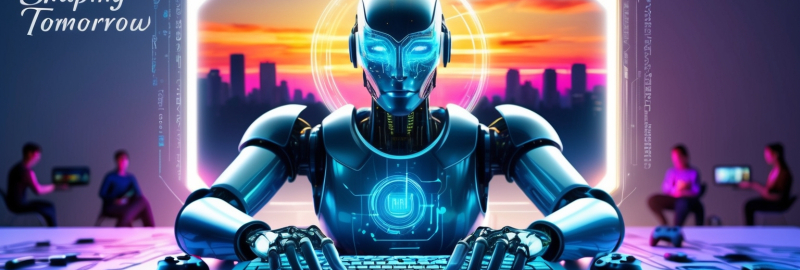
The conversation around artificial intelligence in game creation is heating up, and one prominent voice in the industry is expressing unwavering support for its integration. The emphasis on technology shaping the future of game development is palpable in remarks made by an influential figure in gaming.
The respected developer behind the horror phenomenon Dead Space, who also played key roles in crafting Consider this rewritten version: "Noteworthy releases like Modern Warfare 3, Advanced Warfare, and" WWII, recently contributed to The Callisto Protocol. His His background lays the bedrock upon which his success is built forward-thinking opinions on technological evolution in games.
He asserts that artificial intelligence holds the potential to make the development process more efficient, lower overall expenditures, and enhance the quality of the final product. Despite noting that current technology requires further refinement before it can be seamlessly integrated into game engines, he sees the possible displacement of some roles as an inevitable step in progress.
Reflecting on past transitions, he recalled early concerns when software like Photoshop arrived, with many predicting that digital tools would supplant traditional creative roles. Similarly, the advent of motion capture initially sparked fears over job loss but ultimately pushed the creative industry to achieve higher standards.
Looking toward the future, he envisions the emergence of new specialties, including roles focused on guiding artificial intelligence applications during development. His perspective is clear: the technology is already among us, and embracing it could redefine the way games are created.
- Advancing efficiency and cost-effectiveness while improving quality.
- Learning from historical shifts such as the introduction of Photoshop and motion capture.
- Anticipating the creation of specialized roles to support new technology.
- Recognizing the gradual adoption of refined AI within game engines.
This outlook invites further debate on whether artificial intelligence truly represents the future of game development, challenging creators and audiences alike to consider how the tools of tomorrow will reshape the art of gaming.


